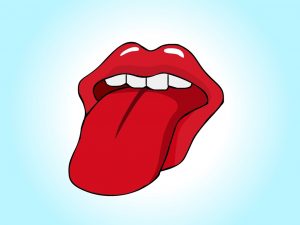Dr. Nikhil, your Panipat dentist, has years of experience working with children and new parents. He is here to provide you some ideas how to teach your child mouth anatomy in a fun and engaging way.
Mouth anatomy is about more than just teeth, and the more your child learns about the role his or her entire mouth plays on body health, the easier it is to promote good oral hygiene. Here are a few activities you can do together when talking about whole mouth health.
Mouth Self Portrait
Help your child get to know each part of the mouth. A mouth self portrait is a great way to see just what makes a mouth work the way it does. Grab a mirror, some crayons, a sheet of paper and a well-lit area. Here, have your child open up his or her mouth and peek inside. Talk about some of the things he sees: Not only teeth, but also the gums, tongue, the roof and bottom of the mouth. You can then challenge your child to draw and label those parts, creating a mouth anatomy that all kids become familiar with growing up.
Proper Brushing
Of course, oral health starts with dental health. When a child’s teeth are properly cared for, the rest of the mouth is healthy as a result. But because kids don’t always know the proper way to brush, try this: Sketch the shape of a tooth on a dark-colored piece of construction paper. Then, offer your child an old toothbrush and some white paint, challenging him to cover the entire tooth with their hand-drawn “toothpaste.” You can then demonstrate different techniques, like brushing up, down, sideways and in a circular motion to ensure the entire tooth is as white as the paper you started with.
Once you’ve practiced on paper, bring them to the sink to practice real-life brushing. Use a mildly flavored toothpaste to encourage a great experience your child will want to improve on again and again.
Supermarket Collage
So much of a healthy mouth is what you put into it: Foods that are sugary, sticky or highly acidic can result in plaque buildup and even canker sores, so test your child’s knowledge on foods that are good for the mouth versus foods that could cause these problems. Start by gathering a few supermarket fliers and another piece of paper, labeling it, “Good Foods” on one side and “Foods That Can Hurt My Mouth” on the other. Then, help your child to cut out different foods from the flier and glue them to the appropriate side of the page. Talk about each food and why it’s either a good choice or something to save as a once-in-a-while treat.
For more info visit us at www.panipatdentist.com
 Dr. Nikhil’s Dental Clinic & Implant Center
Dr. Nikhil’s Dental Clinic & Implant Center



